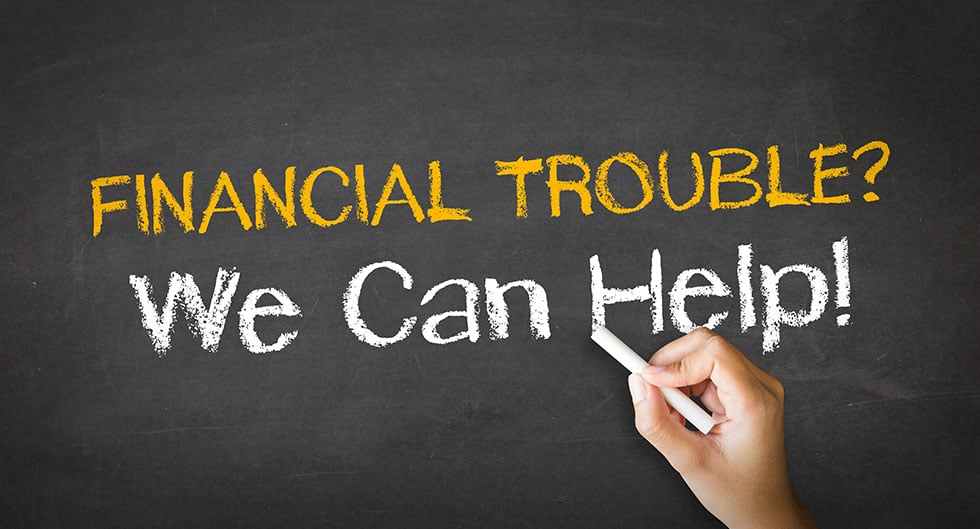Updated with latest median income (set starting November 1, 2023)
If you are struggling with debt, bankruptcy may offer a way for you to eliminate some or all your debt and get a fresh start. Unless most of your debt is business or tax debt, you must pass the bankruptcy means test in order to be eligible to file a Chapter 7 Bankruptcy. This blog will explain what the means test is and how it works.
What is the Means Test?
The means test is basically a screening process used by the Bankruptcy Court to determine if an individual who has mostly consumer debt is eligible to file a Chapter 7 bankruptcy. The means test looks at whether an individual has enough disposable income to pay some or all their debt.
Who Must Pass the Means Test?
The means test is only for people whose debt is primarily consumer debt such as medical and credit card debt. You don’t need to pass the means test if your debt is mainly business or tax debt. If you are a disabled veteran, you may also be exempt from the means test depending on your level of disability and when you incurred the debts. You may also qualify for an exemption if you are in the military reserves or active in the National Guard.
How Does the Means Test Work?
Step 1: Look at Your Average Monthly Income
The first part of the means test looks at whether your average monthly income for the 6 months before your bankruptcy filing is below your state’s median income.
Your average monthly income is compared to the median income of a New Jersey family the same size as yours.
As of November 1, 2023, the median annual household income in New Jersey is:
- $79,816 for a single earner ($6,651/month)
- $96,779 for a family of two ($8,065/month)
- $125,090 for a family of three ($10,424 month)
- $151,181for a family of four* ($12,598/month)
*Add $9,900.00 a year for each person beyond four.
While the means test is based on the past six months, adjustments can be made for recent or upcoming financial changes that you may have.For example, if you were employed for 4 of the past 6 months, but are now unemployed, the means test will factor in the drop in income. Conversely, if you recently got a new job and are making more money, that increase will be considered as well.
If your income is below the median income, you’ve passed the means test and can file for a NJ Chapter 7 bankruptcy. Most people pass the means test. If you don’t pass the means test you move on to the second step.
What Is Considered Income for the Means Test?
For purposes of the Means test, all income that you received from most sources during the full 6 months before the date you filed your petition is considered.
Income sources includes:
- Salaried income
- 1099 Income such as Uber or Lyft
- Hourly and overtime income
- Rental Income (Net)
- Child Support and Alimony
- Pension & Retirement Income
- Business Income (Net)
- Unemployment compensation
- Worker’s Compensation Benefits
- Annuity payments
The Means test includes the income of both spouses, even if your spouse is not filing with you. If you are legally separated from your spouse, however, you might not have to include their income in the means test.
Not all income is included in the bankruptcy means test. For example, some disability and social security income are not included. If your income has been higher in previous months but is now diminishing due to a lack of income, you might want to wait several months and recalculate the means test.
Step 2: What If I Don’t Pass the Means Test?
If you don’t pass the means test it doesn’t necessarily mean that you can’t file a Chapter 7 bankruptcy. It means that you must go to the second step.
The second portion of the means test lets you deduct allowable monthly expenses from your current monthly income to calculate your disposable income.
It is important that you accurately gather information about your household expenses over the last 6 months. Allowable expenses include things such as groceries, medical expenses, clothing, rent, utilities, and family support payments. What’s left after allowable expenses is considered to be disposable income that could be put toward paying your bills.
If your disposable income is shown to be low enough, you may still qualify for Chapter 7 at this point. If this disposable income is too high, then you will not qualify for Chapter 7, as it is presumed that this money could be used toward outstanding debts.
An experienced NJ bankruptcy attorney at Levitt and Slafkes will make sure your expenses are properly documented and help you to pass the means test.
Not Eligible for Chapter 7? Chapter 13 May Offer You Many Benefits
If you are eligible and proceed with a Chapter 7 bankruptcy, you can look forward to a discharge of most of your debts within three to six months. If you are not eligible, your attorney may suggest that you file for Chapter 13, bankruptcy. We would discuss this option with you should it be relevant.
Contact Us for Help Now
The experienced bankruptcy attorneys at Levitt & Slafkes, P.C. can answer all your questions regarding bankruptcy issues. Contact us today so one of our attorneys can evaluate your case and discuss the best options available to you. We are here to help! Call us at 973-323-2953, or contact us online to schedule a consultation at no cost.
We are proudly designated as a debt relief agency by an Act of Congress. We have proudly assisted consumers in filing for Bankruptcy Relief for over 30 years. The information on this website and blogs is for general information purposes only. Nothing should be taken as legal advice for any individual case or situation.



